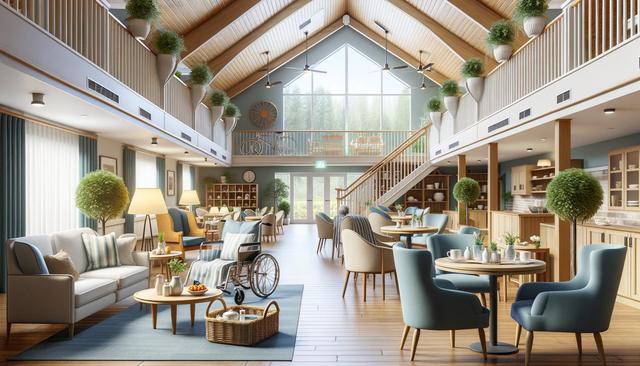Understanding the Need for Senior Housing
As people age, their living needs often change, prompting many to explore senior housing options. These specialized communities are designed to support older adults through various stages of independence. Whether driven by health concerns, a desire for a maintenance-free lifestyle, or the need for a social environment, senior housing can provide an ideal solution. By offering different levels of care and services, these communities help seniors maintain their quality of life while ensuring safety and access to assistance when needed.
Senior housing can range from independent living communities to those offering assisted living or skilled nursing care. Each type serves a different purpose depending on the individual’s health, mobility, and personal preferences. With the aging global population, demand for such housing is increasing, making it essential for individuals and families to understand the available options and plan accordingly.
Types of Senior Housing Communities
Senior housing is not a one-size-fits-all solution. There are several types of communities available, each tailored to different levels of independence and care. Understanding these options can help families choose a living arrangement that best matches their loved one’s needs.
Common types of senior housing include:
- Independent Living: Ideal for active seniors who want a community setting without the burden of home maintenance.
- Assisted Living: Provides help with daily activities such as bathing, dressing, and medication management.
- Memory Care: Specifically designed for individuals with Alzheimer’s disease or other forms of dementia.
- Skilled Nursing Facilities: Offer 24-hour medical care and rehabilitation services.
- Continuing Care Retirement Communities (CCRCs): Combine multiple levels of care in one location, allowing residents to age in place.
Choosing the right type of senior housing depends on a thorough assessment of current and future needs, as well as financial considerations and personal preferences.
Benefits of Senior Housing
Senior housing communities offer several advantages that go beyond just a place to live. These benefits contribute to the overall well-being, independence, and happiness of residents. For many, the social aspect alone can be a significant improvement from living alone, reducing feelings of isolation and depression.
Some key benefits include:
- Safety and Security: Many facilities have 24/7 staff and emergency call systems.
- Social Opportunities: Group activities, events, and communal dining promote interaction and friendships.
- Nutrition and Healthcare: Meals are often included, and access to healthcare is readily available.
- Maintenance-Free Living: Residents don’t need to worry about home repairs or yard work.
- Transportation Services: Many communities provide scheduled transportation to shopping centers, medical appointments, and community events.
These features can significantly improve the quality of life for seniors while providing peace of mind to their families.
Factors to Consider When Choosing Senior Housing
Selecting the right senior housing option involves more than just comparing amenities. It’s a decision that should be guided by careful evaluation of personal needs, budget, location, and long-term care requirements. Families should begin by assessing the current health status and lifestyle of the senior and projecting future care needs.
Important considerations include:
- Location: Proximity to family, friends, and medical facilities.
- Cost: Understanding what’s included in the monthly fees and any additional costs for services.
- Level of Care: Ensuring the facility can provide the necessary medical or personal support.
- Licensing and Accreditation: Verifying that the facility meets state and federal regulations.
- Community Culture: Visiting and interacting with residents and staff can provide insight into day-to-day life.
Taking the time to tour multiple facilities and asking detailed questions can help ensure the selected housing option will be a good long-term fit.
Preparing for the Transition to Senior Housing
Moving into senior housing can be a major life change, so preparation is key to ensuring a smooth transition. Emotional readiness is just as important as logistical planning. Seniors may have mixed feelings about leaving a long-time home, and involving them in the process can help ease the transition.
Steps to prepare include:
- Downsizing: Sorting through possessions and deciding what to bring to the new residence.
- Financial Planning: Reviewing costs and exploring funding options such as savings, insurance, or government assistance programs.
- Medical Records: Ensuring all necessary health information is transferred to the new facility.
- Social Planning: Encouraging involvement in community activities and meeting neighbors early on.
- Family Support: Maintaining frequent communication and visits to help the senior feel connected and supported.
With thoughtful preparation, the move can mark the beginning of a fulfilling new chapter, offering safety, support, and a renewed sense of community.
Conclusion: Making Informed Choices for a Fulfilling Future
Senior housing represents a valuable option for older adults seeking a supportive and enriching living environment. By understanding the different types of communities, evaluating personal needs, and preparing for the transition, families can make informed decisions that promote well-being and independence. Whether the focus is on maintaining an active lifestyle or ensuring access to care, senior housing can provide peace of mind and a higher quality of life for both residents and their loved ones.




Leave a Reply